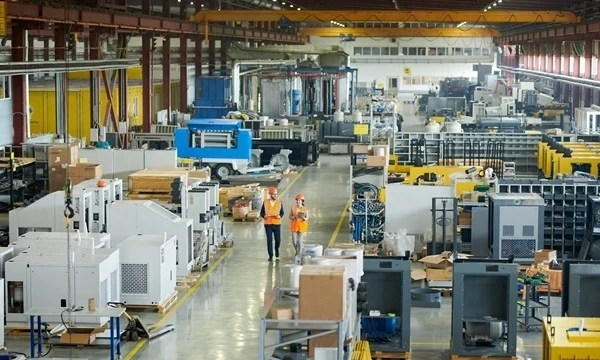Table of Contents

Leading AI researcher with 15+ years of experience in enterprise automation and machine learning technologies.

The Dawn of Intelligent Automation
We stand at the threshold of a new era in enterprise technology. Artificial intelligence has evolved from a futuristic concept to a practical, transformative force that's reshaping how businesses operate, compete, and deliver value to their customers. This isn't just about automating repetitive tasks—it's about creating intelligent systems that can think, learn, and adapt.
At PS Global, we've witnessed firsthand how AI-driven automation is revolutionizing enterprises across every industry. From healthcare systems that can predict patient outcomes to manufacturing plants that optimize themselves in real-time, the applications are as diverse as they are powerful. But what makes this revolution truly remarkable is not just the technology itself, but how it's fundamentally changing the relationship between humans and machines in the workplace.
Current State of Enterprise AI
Today's enterprise AI landscape is characterized by rapid adoption and increasing sophistication. According to our latest research, 82% of Fortune 500 companies have implemented some form of AI automation, with an average ROI of 300% within the first two years of deployment. However, the true measure of success isn't just in cost savings—it's in the new capabilities and opportunities that AI creates.
Key AI Adoption Statistics
The most successful implementations combine machine learning algorithms with human expertise, creating hybrid systems that leverage the best of both worlds. These systems don't replace human workers—they augment their capabilities, freeing them from routine tasks while enabling them to focus on strategic, creative, and interpersonal activities that drive business value.
Key Transformation Areas
Customer Experience Enhancement
AI is revolutionizing customer interactions through intelligent chatbots, personalized recommendations, and predictive customer service. Modern AI systems can understand context, emotion, and intent, providing responses that feel natural and helpful. One of our retail clients saw a 45% increase in customer satisfaction scores after implementing our AI-powered customer service platform.
Operational Excellence
From supply chain optimization to predictive maintenance, AI is helping organizations achieve unprecedented levels of operational efficiency. Machine learning algorithms can analyze vast amounts of data to identify patterns, predict failures, and optimize processes in real-time. A manufacturing client reduced equipment downtime by 60% using our AI-powered predictive maintenance solution.
Decision Support and Intelligence
AI systems can process and analyze data at scales impossible for human teams, providing insights that drive better decision-making. From financial risk assessment to market trend analysis, AI is becoming an indispensable tool for executive teams and strategic planners.
"The organizations that will thrive in the next decade are those that view AI not as a replacement for human intelligence, but as an amplifier of human potential. The magic happens when we combine the creativity and empathy of humans with the speed and scale of machines."
Implementation Strategies for Success
Successful AI implementation requires more than just technology—it requires a comprehensive strategy that addresses people, processes, and technology in equal measure. Based on our experience with hundreds of enterprise clients, we've identified key success factors that separate transformative AI initiatives from disappointing ones.
Start with Clear Business Objectives
The most successful AI projects begin with clearly defined business objectives and success metrics. Rather than implementing AI for its own sake, focus on specific business challenges that AI can address. Whether it's reducing costs, improving customer satisfaction, or accelerating innovation, having clear goals ensures that your AI initiative delivers measurable value.
Invest in Data Quality and Governance
AI systems are only as good as the data they're trained on. Investing in data quality, governance, and infrastructure is crucial for AI success. This includes establishing data standards, implementing security protocols, and ensuring compliance with relevant regulations. Organizations that prioritize data quality see 40% better AI performance outcomes.
Foster a Culture of Continuous Learning
AI implementation is not a one-time project—it's an ongoing journey of learning and adaptation. Successful organizations invest in training their workforce, establish centers of excellence, and create feedback loops that enable continuous improvement. This cultural transformation is often more challenging than the technical implementation, but it's equally important for long-term success.
Overcoming Common Challenges
While the benefits of AI automation are compelling, organizations often face significant challenges in their implementation journey. Understanding these challenges and having strategies to address them is crucial for success.
Challenge: Legacy System Integration
Many enterprises struggle to integrate AI solutions with existing legacy systems, leading to data silos and operational inefficiencies.
Solution: Implement a phased integration approach with API-first architecture and middleware solutions that bridge legacy and modern systems.
Challenge: Skills Gap and Change Management
Organizations often lack the internal expertise to implement and maintain AI systems, while employees may resist changes to established workflows.
Solution: Develop comprehensive training programs, establish partnerships with AI experts, and implement change management strategies that emphasize employee empowerment rather than replacement.
Challenge: Security and Compliance Concerns
AI systems handle sensitive data and make autonomous decisions, raising concerns about security, privacy, and regulatory compliance.
Solution: Implement AI governance frameworks, establish clear audit trails, and design systems with privacy-by-design principles and robust security controls.
Future Outlook and Predictions
As we look toward the future, several trends will shape the next phase of AI-driven enterprise transformation. These developments promise to make AI even more powerful, accessible, and transformative for businesses of all sizes.
Emergence of Generative AI in Enterprise
Generative AI technologies, like large language models and creative AI systems, are beginning to transform knowledge work in unprecedented ways. From automated content creation to intelligent code generation, these technologies will enable new levels of productivity and creativity in enterprise settings.
AI-Human Collaboration Models
The future of work will be characterized by seamless collaboration between humans and AI systems. Rather than replacing human workers, AI will become an intelligent partner that enhances human capabilities, providing real-time insights, automating routine tasks, and enabling more strategic and creative work.
Democratization of AI Technologies
As AI tools become more user-friendly and accessible, we expect to see broader adoption across all levels of organizations. Low-code and no-code AI platforms will enable business users to create and deploy AI solutions without extensive technical expertise, accelerating innovation and reducing dependence on specialized AI teams.
Conclusion and Next Steps
The AI revolution in enterprise automation is not a distant future—it's happening now. Organizations that embrace this transformation thoughtfully and strategically will gain significant competitive advantages, while those that hesitate risk being left behind.
At PS Global, we believe that the most successful AI implementations are those that prioritize human empowerment alongside technological advancement. By combining cutting-edge AI capabilities with deep industry expertise and human-centered design, we help organizations not just automate their processes, but transform their entire approach to business.
The journey toward AI-driven transformation requires careful planning, strategic thinking, and ongoing commitment. But for organizations willing to embrace this change, the rewards—in terms of efficiency, innovation, and competitive advantage—are transformational.
Ready to Start Your AI Transformation?
PS Global's AI experts are ready to help you navigate your transformation journey, from strategy development to implementation and optimization.
Discussion
Share your thoughts and experiences with AI automation in the comments below.


